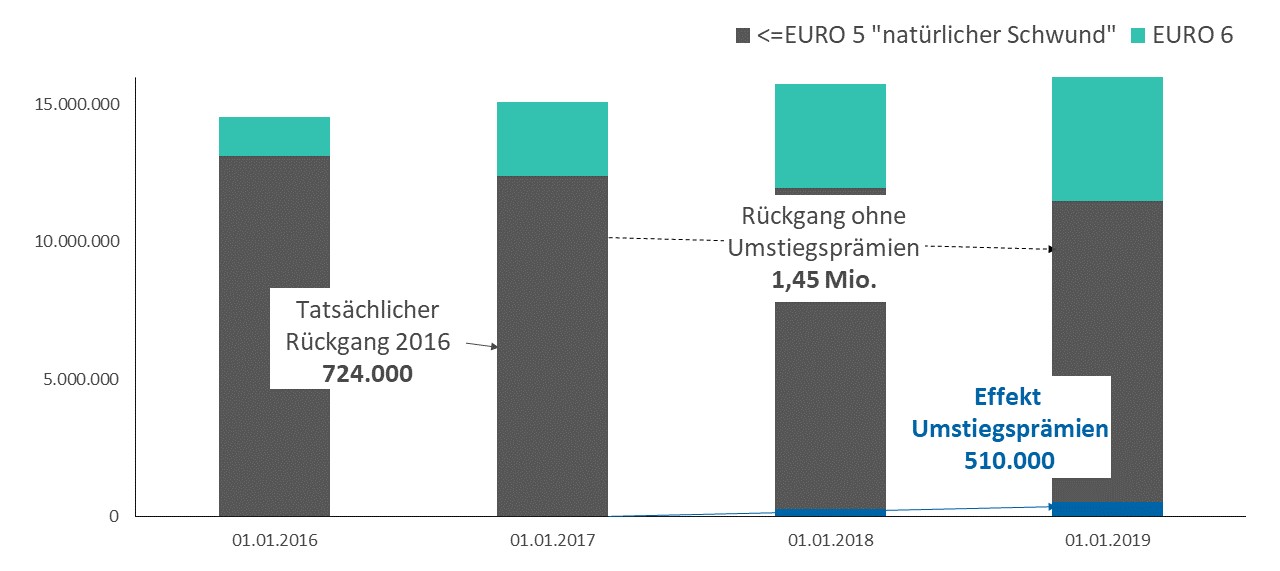Clean air
The future of the diesel engine and the development of air quality continue to be important issues, not only for the public but also for the VDIK. Avoiding driving bans remains a central challenge.
Stock renewal is effective
The main instrument here is the renewal of the existing fleet, i.e. the replacement of older diesel vehicles with higher nitrogen oxide emissions. These exchange premiums are offered by international manufacturers with great success.
According to the VDIK’s own calculations, more than 500,000 diesel cars complying with the Euro5 emission standards and worse have disappeared from the fleet in 2017 and 2018 as a result of these measures. Without the promotion of renewal of the existing fleet, a decline in Euro5 diesel cars and worse by around 1.5 million would have been expected in 2017 and 2018. In fact, however, the number of cars in circulation fell by just under 2 million and thus by around 500,000 units more than expected. This effect is attributable to the changeover premiums.
Clean Diesel vehicles spread fast
Not only in numbers but also qualitative changes can be observed: from 2017 onwards, the number of petrol engines and alternative drive systems grew more strongly than diesel. In 2018, the number of registered diesel passenger cars even fell slightly. This led to a shift towards drive types with significantly lower nitrogen oxide emissions.
Since 2018, low-nitrogen-oxide diesel cars of the Euro6d-Temp standard have also been registered – with a strong upward trend. By mid-2019, the number of these particularly clean vehicles had risen to over 650,000. Even vehicles with the next, even stricter Euro 6d standard are already being offered by international manufacturers.
Air quality in cities is improving all the time
This shows that accelerated stock renewal is working. As a result of these and other measures, there has been a positive development in the measured air quality values in cities. In 2018, 57 cities still exceeded the annual average air quality limit of 40 micrograms NO2 per cubic metre of air. In 2017, 65 cities were still affected. In 42 cities, the exceedance was 10 micrograms or less.
The VDIK member companies are continuing exchange campaigns and are additionally supporting fleet renewal with a comprehensive range of alternative drivetrains and Euro6d and Euro6d-Temp vehicles. The international motor vehicle manufacturers are thus making a significant contribution to avoiding driving bans and continuously improving air quality.


